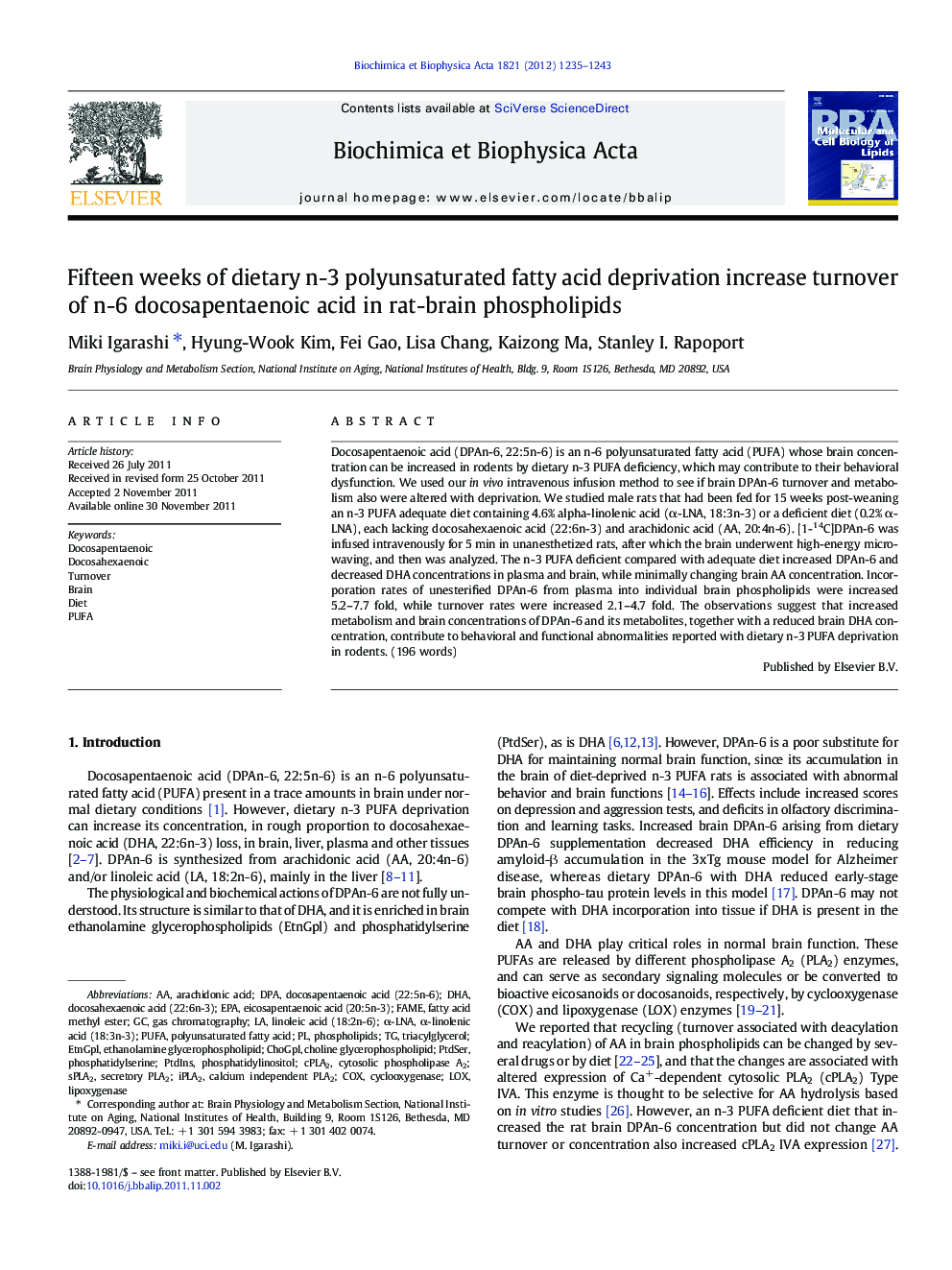| Article ID | Journal | Published Year | Pages | File Type |
|---|---|---|---|---|
| 1949389 | Biochimica et Biophysica Acta (BBA) - Molecular and Cell Biology of Lipids | 2012 | 9 Pages |
Docosapentaenoic acid (DPAn-6, 22:5n-6) is an n-6 polyunsaturated fatty acid (PUFA) whose brain concentration can be increased in rodents by dietary n-3 PUFA deficiency, which may contribute to their behavioral dysfunction. We used our in vivo intravenous infusion method to see if brain DPAn-6 turnover and metabolism also were altered with deprivation. We studied male rats that had been fed for 15 weeks post-weaning an n-3 PUFA adequate diet containing 4.6% alpha-linolenic acid (α-LNA, 18:3n-3) or a deficient diet (0.2% α-LNA), each lacking docosahexaenoic acid (22:6n-3) and arachidonic acid (AA, 20:4n-6). [1-14C]DPAn-6 was infused intravenously for 5 min in unanesthetized rats, after which the brain underwent high-energy microwaving, and then was analyzed. The n-3 PUFA deficient compared with adequate diet increased DPAn-6 and decreased DHA concentrations in plasma and brain, while minimally changing brain AA concentration. Incorporation rates of unesterified DPAn-6 from plasma into individual brain phospholipids were increased 5.2–7.7 fold, while turnover rates were increased 2.1–4.7 fold. The observations suggest that increased metabolism and brain concentrations of DPAn-6 and its metabolites, together with a reduced brain DHA concentration, contribute to behavioral and functional abnormalities reported with dietary n-3 PUFA deprivation in rodents. (196 words)
► Dietary n-3 PUFA increased DPAn-6 in rat brain. ► The diet increased DPA incorporation and turnover rates in rat brain. ► The change may be associated with increased cytosolic cPLA2 IVA. ► These could contribute to behavioral and functional abnormalities by the diet.
